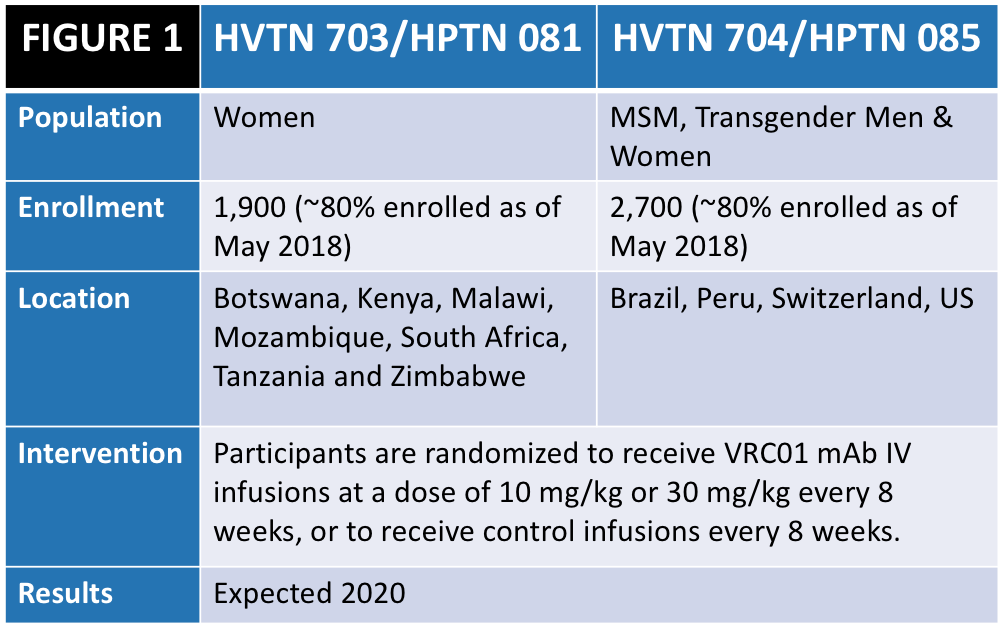May 17, 2018
Bill Snow founded AVAC and is the former Global HIV Vaccine Enterprise Executive Director.
Research on broadly neutralizing antibodies (bNAbs) is taking the field of HIV prevention science in new directions, with implications for new prevention interventions and vaccine development. There’s much to know and much to learn about these powerful instruments of the immune system.
Since 2016, more than 2,700 men in Brazil, Peru, Switzerland and the US, and 1,900 women in Southern Africa have begun to enroll in clinical trials looking at antibody-mediated prevention, or AMP (see Figure 1). A collaboration between the HIV Prevention Trials Network (HPTN) and HIV Vaccine Trials Network (HVTN) (both funded by the National Institutes of Health), the AMP studies test the safety and efficacy of the broadly neutralizing antibody (bNAb) VRC01 when it is given every 8 weeks to reduce the risk of HIV infection. But how did this approach come about, why is it important and what may happen next with bNAbs for HIV prevention?
What’s an antibody?
Antibodies are Y-shaped proteins produced by B cells to clear infected cells and pathogens in the bloodstream. B cells are part of what is known as the adaptive immune system, which mounts defenses aimed at specific invaders—like a cold virus or chicken pox or HIV. The innate immune system also defends against invaders, but its defenses are not so finely tailored to a specific pathogen. When a virus encounters the right B cell, the B cell begins cloning itself and produces antibodies designed to battle that virus. These antibodies circulate throughout the body looking for the virus, and they evolve continuously, becoming ever more precise and numerous.
The Antibody Hierarchy
Here are some terms that will help you follow this ongoing story:
- Antibody: Proteins produced by B cells as a major part of the adaptive human immune defense against specific invaders.
- Binding antibody: An antibody that attaches to a virus but doesn’t necessarily render it ineffective; can be driven by the innate immune system.
- Monoclonal antibody: A bioengineered antibody made in a manufacturing facility by copying (cloning) one original antibody—selected for its potency and other characteristics.
- Neutralizing antibody: Antibody that disables virus.
- Broadly neutralizing antibody: An antibody that neutralizes many different genetic variants of HIV.
- Passive antibodies: A dose of monoclonal antibodies that are infused or injected, rather than made by one’s own immune system.
